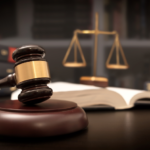
Liberalisation of the grounds for consumer bankruptcy in the context of criminal liability for insolvency

One of the most important changes resulting from the Act of 19 July 2019 amending the Act – Bankruptcy Law and some other acts is the resignation from the examination of the payment morality of debtors at the stage of examining the motion to declare bankruptcy. According to the authors’ assurances, the changes aim at further liberalization of the prerequisites for declaring bankruptcy by natural persons not conducting business activity, enabling them to have a wide range of possibilities for debt repayment and limiting the examination of prerequisites related to the debtor’s morality only to cases of intentional bankruptcy.
NO LONGER TO EXAMINE NEGATIVE PREMISES
Pursuant to the proposed Article 49114a of the Bankruptcy Law, the court issues a decision refusing to establish a plan for repayment of creditors or redemption of liabilities of the bankrupt without establishing a plan for repayment of creditors or conditional redemption of liabilities of the bankrupt without establishing a plan for repayment of creditors, if the bankrupt led to its insolvency or significantly increased its degree intentionally, in particular by squandering parts of the assets and intentionally failing to settle due liabilities.
Resignation from previously binding negative premises: intentional and gross negligence as well as narrowing down the inability to indebtedness exclusively to deliberate insolvency, in practice results in a discrepancy between the regulations of the bankruptcy law and the penal code. Pursuant to Article 301 § 2 and 3 of the Criminal Code, it is a prohibited act to make oneself insolvent through intentional actions (i.e. also intentionally) and reckless (unintentionally). Incidentally, some authors question the possibility of this type of crime being committed by a person who is not an entrepreneur, but it seems that they are in a minority.
MORAL EVALUATION OF THE DEBTOR’S BEHAVIOUR
From the point of view of the axiology of the legal system, the granting of the right to debt relief to persons who, under the Criminal Code, have committed an offence against business transactions should be considered at least doubtful. It is not the case that the legislator in bankruptcy proceedings completely abandoned the moral assessment of the debtor’s behaviour. The bankruptcy law still assesses the debtor’s past behaviour by providing for the possibility of extending the repayment plan or refusing to extend the debt (as indicated, however, only if the insolvency was caused by his intentional actions). This means that, in the opinion of the legislator, a person who committed a prohibited act against economic activity is still a person who should have the right to debt repayment and start living with a “clean card”. Of course, the life situation of individual debtors may justify the view that they deserve debt in spite of the fact that a crime has been committed, but in order to enable such action by the courts, it was sufficient to extend the possibility of applying the equity clause and humanitarian considerations to the current Article 4914(1) of the Bankruptcy Law.
OBLIGATION TO NOTIFY LAW ENFORCEMENT AGENCIES OF AN EX OFFICIO PROSECUTED OFFENCE
It should also be emphasised that, taking into account the wording of Article 304(2) of the Code of Criminal Procedure, it is noteworthy that, in the light of the wording of Article 304(2) of the Code of Criminal Procedure, the following should be added In a situation where the bankruptcy court establishes a repayment plan for a period longer than 36 months or refuses to redeem liabilities, the court will also be formally obliged to inform the aforementioned law enforcement authorities about this fact. As a consequence, it may turn out that the debtor, on the basis of the same actions, deserves both a debt and a new opportunity, and will be sentenced for committing a crime against economic activity.
While the above considerations apply primarily to natural persons not conducting business activity, due to the analogous amendment of Article 369 of the Bankruptcy Law, they may also apply to entrepreneurs.













